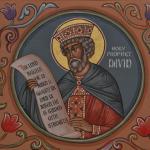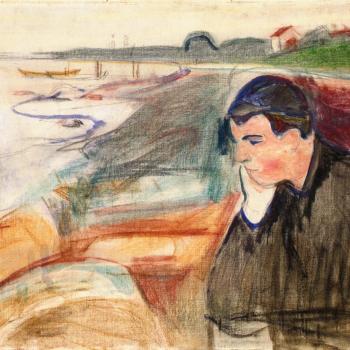This final line in the article refers to the activities of Fr. Alexis Toth, now venerated as a saint in the Orthodox Church in America, who, originally a Ruthenian Catholic, was spurned by Bishop John Ireland of St. Paul, who found him deeply suspect for being a married priest. Fr. Toth, berated by his Latin brethren, ended up leading many to the Orthodox Church, almost entirely because Bishop Ireland failed to understand that, indeed, there was such a thing as a married Catholic priest.
That’s why Bishop Tobin’s comments (even if not intended to sleight his Eastern brethren) cannot help but feel problematic. They take an issue like married clergy and raise them to the level of substantially-more-fraught problems. On the one hand, they imply a lack of understanding of the Western Church’s history. On the other, they recall Fr. Alexis Toth’s treatment and erase the existence of Eastern Catholics today and contribute to the problems many Easterners experience while attending Roman liturgies (for example, some Latin priests will not commune our children, even though we offer all three Sacraments of Initiation at the same time, usually when the child is very young—we don’t typically have “first Communions” at a later age).
I understand, of course, that the bishop was speaking to “liberal Catholics,” that he likely didn’t have Easterners in mind at all. But, in a sense, that’s the problem—that he could forget them in scoring points against his opponents, implying (even if unintentionally) that somehow Eastern Catholic practices are a Protestantization.
Westerners may seek to make arguments against married clergy in their own Church. That’s reasonable enough (and personally not something I have an opinion on). But their arguments must be prudential; they must argue based on the circumstances and history of their Church. They cannot make absolute statements like these, linking acceptable practice to, say, much larger changes in Church teaching.
I apologize if my words here seem strong. Again, I understand fully that Bishop Tobin intended nothing malicious in his tweet; he felt he was combatting an enemy. But sometimes what we say without thinking reveals the most about us, says the greatest amount about what lives at the forefronts of our minds (and what we allow to recede). Eastern Catholics don’t want to recede. Many of us would like to play a meaningful role in ecumenism within the Church. We want to testify to the power of lived unity in diversity of rites and traditions. We ask only to be remembered by our brethren, to be loved in all our differences.













